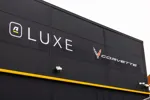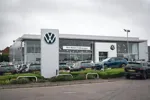Looking at the average service department, for every £100 of sales £25 is spent on the technicians' wages for producing the work sold, and the purchase of oils and sublet (excluding parts). This leaves a so-called gross profit of £75. Then, out of the £75, there are expenses to pay like the salaries of non-productive staff, holiday pay for the technicians, training, and so on. Expenses average £36, which leaves a direct or departmental profit of £39.
Suppose, then, that you can increase sales from £100 to £103 – a mere 3%. Next you effectively reduce the cost of sales and expenses by 3% by working to keep these at the previous levels despite higher sales. The result is that direct profit increases by 8% to £42. In the context of the 'average' service department, we are talking about £21,000 more profit every year.
The only catch is how far a service department's facilities and resources can be pushed to increase sales, and cap costs and expenses at the same time. Obviously there are limits, and for franchised dealers these can be explored by looking at the financial composites, or inter-firm comparisons, produced by vehicle manufacturers. What these composites tell you is that, pro rata, the star performers produce more sales than average, and have the same or lower sales costs and expenses for a given level of facilities and resources.
Star performers achieve higher productivity, better utilisation, and therefore a higher than average overall efficiency – usually exceeding 115%. That's more work with less overtime and thus at lower cost. You also notice they carry out proportionately more retail work than average, which pays a higher labour rate than warranty and internal. And their profit margins on oils and sublet are higher because they buy cheaper.
These stars can make you £3,000 more direct profit per technician per annum than the average. Clearly selling more while controlling costs and expenses, and buying well, is hardly magic. But it is a very impressive trick.'














Login to comment
Comments
No comments have been made yet.